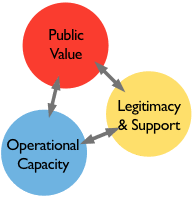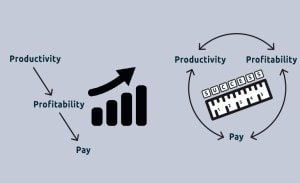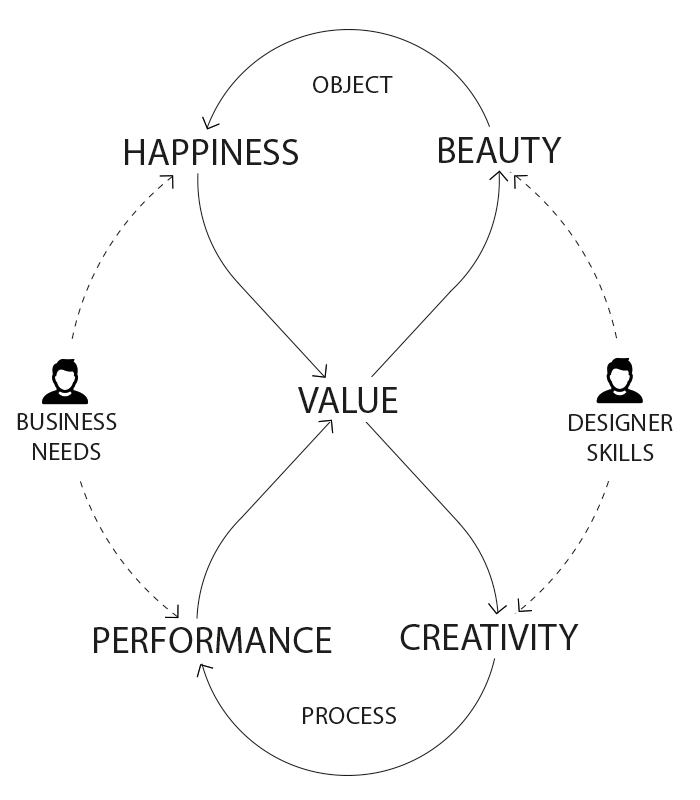I'm thinking about... |
 Value creation and Lower Level Politics (originally published on LinkedIn) Value Creation: One-waka approach In the public sector – local government, central government, whatever the agency and even the service delivery partners (generally NFP's) – it's one waka. In actual fact, NZ is so small we need to take a one-waka perspective on everything! We would be remiss not to consider the macro environment across policies and investments and only focus on personal accountability areas/responsibilities. But a trajectory of public sector reforms has resulted in a culture of silo and competitive behaviours from practitioners across the system. This is a complex and difficult environment for public sector leaders to deliver collaborative initiatives. However, it is heartening to see a current review of the State Sector Act in process, with relevant current foci, namely: creating a modern Public Service for a modern New Zealand; commitment to Māori; tools for a flexible Public Service; leading better outcomes and services; the best people for the job; and, a trusted Public Service. But in the end, even with changes to legislation and the system, the evidence clearly shows that collaboration is contingent on lower level politics. It’s about developing a genuine willingness on the part of persons across teams and organisations to work closely with each other towards collective value creation. And, of course, value creation is not limited to dollar savings - that's a really small lens to assess "value" and even "value for money"! What's value? One of the key proponents of public value creation was Moore (1995), and he continues to be an important voice in the field. He presented the concept of the strategic triangle (see below), which though based on contemporary strategy experience from the private sector is a relatively pragmatic approach as "... it takes account of the need to engage upwards with political leaders for legitimacy and support, and downwards in order to achieve organisational capability and to ensure that service delivery is feasible" (see Duncan & Chapman (2012) Better public services? Public management and the New Zealand model. Public Policy). In his recent address to the SOLGM conference, Ganesh Nana (Chief Economist at Business and Economic Research Limited (BERL)) presented an alternative model (see below) for change based on the local government four well-beings and suggests that the well-beings be used to address four points (I have paraphrased): critiquing the use of "value" in policy or decision-making; a more inclusive approach to assessing value; considering the "do nothing" option; and, cutting across silos for assessments (see published article in November 2018 issue of the NZ Local Government Magazine) There are also more holistic approaches offered by designers e.g. Dennis Hambeuker's, "The Synergy Model" and it seems to incorporate a number of approaches. Have a look at his work, it certainly pushes my boundaries and is helping me widen my thinking. One of my favourite articles on the subject is Kramer and Pfitzer's HBR article "The Ecosystem of Shared Value" (October 2016). In the article they say, "In the past, companies rarely perceived themselves as agents of social change. Yet the connection between social progress and business success is increasingly clear." The article considers collective impact and looks at a number of examples, including: MasterCard, Yara and CocoaAction. Well worth a careful read if you want to add value through collaboration and collective impact. Agreeing a shared agenda and value Overall, my take is there are a number of ways of looking at value and if you explore you will find other alternatives. Earlier this year, when I was working with a group of senior managers from a corporate, all working across some pretty big portfolios (both complex and big $ items!), I raised the discussion ...I was so surprised when I realised it had not even occurred to them that value could be bigger than $ savings!! It was exciting to see their enlightenment as we engaged in a dynamic discussion where they were able to identify opportunities for a different way of working, based on genuine value creation. So, I absolutely believe that the conversation needs to be had at the onset and an agreement made as to what value looks like in any specific collaborative context. This is key to establishing the "shared agenda" for collaboration. Copyright ©2020 Nazanin Jenkin Ltd. | www.nazaninjenkin.com | [email protected] | +64 21 478253
0 Comments
Leave a Reply. |
Nazanin jenkinNazanin Jenkin Archives
September 2021
Categories
All
|



